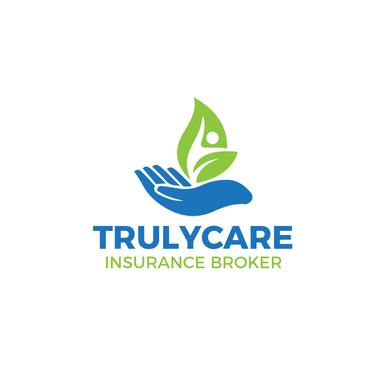How to Survive the 2026 ACA Premium Shock: Your Complete Miami Guide
Miami health insurance premiums are doubling in 2026. Discover 7 proven strategies to survive the ACA premium shock and find affordable coverage before January 15.
11/17/20257 min read


How to Survive the 2026 ACA Premium Shock: Your Complete Miami Guide
Open Enrollment Deadline: January 15, 2026 | Enroll by December 15 for January 1 Coverage
If you're a Miami resident shopping for health insurance on the ACA Marketplace right now, you're probably experiencing serious sticker shock. You're not imagining things—2026 premiums have skyrocketed in ways we haven't seen since 2018, and Miami-Dade County is feeling it particularly hard.
As an independent insurance broker serving Miami families for years, I'm writing this guide to help you navigate these unprecedented increases and find affordable coverage despite the challenges.
The Reality: What Miami Residents Are Facing
Let me be direct about what's happening: health insurance premiums in Florida are roughly doubling for many people in 2026. Here's what that looks like in real numbers for Miami-Dade County residents:
Real Miami Premium Examples (After Tax Credits):
Single 28-year-old earning $35,000/year: Premium jumps from approximately $150/month to $322/month—an increase of $172/month or $2,064/year
Family of four earning $85,000/year: Premium increases from roughly $558/month to $1,019/month—a staggering $461/month or $5,532/year increase
40-year-old earning $22,590/year: Could see payments go from $0/month to $81/month for the same plan
These aren't worst-case scenarios. These are the reality for thousands of Miami families right now.
Why Is This Happening? The Double Hit
Miami residents are getting hit twice in 2026:
Hit #1: Enhanced Subsidies Have Expired
Since 2021, enhanced premium tax credits (subsidies) have been keeping costs down for nearly all Marketplace enrollees. Those expired on December 31, 2025, and Congress did not renew them. Without these enhancements, people are paying significantly more—even with regular subsidies still in place.
The impact is massive: across the country, subsidized enrollees are seeing their premium payments increase by an average of 114%. Many middle-class families earning over 400% of the federal poverty level (about $62,000 for a single person or $128,000 for a family of four) are losing subsidies entirely and facing the full cost of insurance.
Hit #2: Insurance Companies Raised Base Premiums
On top of the subsidy loss, Florida health insurers raised their base premiums by double digits. Florida insurers are increasing rates between 12-40%, with a median increase around 18-20%—the largest jump since 2018.
Why are insurers raising rates so much?
Rising prescription drug costs: Demand for medications like Ozempic, Wegovy, and other GLP-1 drugs has exploded
Higher healthcare utilization: More people are using services post-pandemic
Labor and inflation costs: Healthcare workers cost more, facilities cost more
Anticipation of healthier people dropping coverage: When premiums rise, healthy young people often drop insurance, leaving a sicker pool that's more expensive to cover
Your Miami Survival Strategies: 7 Ways to Fight Back
Strategy #1: Shop Every Single Plan—Don't Auto-Renew
This is the #1 mistake I see: people just renewing their current plan without shopping around. In 2026, this could cost you thousands.
Why shopping matters now more than ever:
Plan premiums have changed at different rates across carriers
Your current "Silver" plan might now cost as much as a "Gold" plan from another insurer
Network changes mean your doctors might be in different plans now
New insurers have entered the Miami market
Miami's 2026 Marketplace carriers include: Florida Blue (covering all 67 Florida counties), Ambetter from Sunshine Health (63 counties including Miami-Dade), Molina Healthcare, Oscar Health, UnitedHealthcare, and the brand new 22 Health from Broward Health and Memorial Healthcare (Broward County).
Action step: Go to HealthCare.gov or contact a licensed broker (like us at Truly Care Insurance Broker) to compare all available plans side-by-side. Don't assume anything.
Strategy #2: Consider Switching Metal Tiers
Just because you had a Silver plan in 2025 doesn't mean Silver is still your best option in 2026.
When to consider Bronze plans:
You're relatively healthy and rarely use healthcare
You want the lowest monthly premium and can handle a higher deductible
NEW FOR 2026: ALL Bronze plans are now HSA-eligible (more on this below)
You have emergency savings to cover the higher deductible
When to consider Gold or Platinum plans:
You have ongoing medical needs (chronic conditions, regular prescriptions, planned surgeries)
You hit your deductible most years
The higher monthly premium is offset by lower out-of-pocket costs when you need care
You're managing conditions like diabetes, heart disease, or autoimmune disorders
Miami tip: Run the math on total yearly costs (premiums + expected medical expenses) for each tier. Sometimes a Gold plan actually costs LESS annually than Bronze if you use healthcare regularly.
Strategy #3: Maximize the New HSA Advantage
Here's a game-changer for 2026: ALL Bronze and Catastrophic plans sold on the Marketplace now automatically qualify for Health Savings Accounts (HSAs), even if they provide coverage before the deductible.
This is huge because HSAs offer triple tax advantages:
Tax deduction on contributions (up to $4,300 for individuals, $8,550 for families in 2026)
Tax-free growth on investments
Tax-free withdrawals for qualified medical expenses
Miami example: A 35-year-old choosing a Bronze plan and maxing out HSA contributions could save $1,075+ in federal taxes alone (assuming 25% tax bracket). That's money that helps offset the premium increase.
How to use this strategy:
Choose a Bronze or Catastrophic Marketplace plan
Open an HSA through your bank or HSA provider
Contribute regularly (even $100-200/month makes a difference)
Use HSA funds for medical expenses, or let it grow for retirement healthcare costs
Strategy #4: Update Your Income Estimate IMMEDIATELY
If your income has changed since you last enrolled, update it NOW on HealthCare.gov. This affects your subsidy amount and could save you hundreds monthly.
2026 WARNING: Subsidy repayment caps have been eliminated for 2026. Previously, if you underestimated your income, you only had to pay back a limited amount at tax time. Now you must repay 100% of excess subsidies. Getting your income estimate wrong could mean owing thousands when you file taxes.
Miami tip: If your income fluctuates (gig work, seasonal employment, commission-based), estimate conservatively. It's better to pay slightly more monthly and get a tax refund than to owe thousands in April 2027.
Strategy #5: Look at Catastrophic Plans (If You Qualify)
If you're under age 30 OR have a hardship exemption, Catastrophic plans are worth considering in 2026. These plans:
Have the lowest monthly premiums
Cover the ACA's 3 primary care visits free before deductible
Protect you from worst-case medical bankruptcy
Are now HSA-eligible (see Strategy #3)
Who should consider Catastrophic plans:
Healthy young adults under 30
People with substantial emergency savings (typically $9,000+)
Anyone qualifying for a hardship exemption
Who should avoid Catastrophic plans:
Anyone with chronic conditions requiring regular care
People who regularly need prescriptions
Families with children
Strategy #6: Verify Your Doctors and Prescriptions Are Covered
With all these changes, provider networks have shifted dramatically. Your doctor who was in-network last year might not be this year—or might be in a different plan.
Before you enroll, verify:
✓ Your primary care doctor is in-network
✓ Any specialists you see regularly are in-network
✓ Your preferred hospital/medical center accepts the plan
✓ Your prescriptions are on the plan's formulary
✓ Your pharmacy is in-network
Miami-specific networks to check:
Does the plan include Jackson Health System?
Are University of Miami Health physicians covered?
Is Baptist Health included?
Are your local urgent cares in-network?
Going out-of-network can cost thousands extra annually. Ten minutes of verification now saves massive headaches later.
Strategy #7: Work with a Licensed Local Broker (It's Free!)
Here's something many Miami residents don't know: working with a licensed insurance broker costs you nothing. Brokers are paid by insurance companies, not by you, so the price you pay is exactly the same whether you enroll directly or with expert help.
What a good broker does:
Compares ALL available plans across ALL carriers
Explains the differences in clear English
Verifies your doctors and prescriptions are covered
Helps you estimate your actual costs (not just premiums)
Assists with applications and subsidy calculations
Provides ongoing support if issues arise
Miami advantage: A local broker who knows Miami-Dade's healthcare landscape can steer you toward plans with the best networks for our area and help you avoid common pitfalls.
At Truly Care Insurance Broker (www.trulycareinsurancebroker.com), we specialize in helping Miami families navigate exactly these kinds of challenges. We're licensed, local, and genuinely invested in finding you the best coverage for your budget.
Special Situations: When You Need Extra Help
Lost Your Low-Income Year-Round Enrollment?
If you earned less than about $23,475/year in 2025, you previously could enroll year-round. That special enrollment period was eliminated for 2026. You must now enroll during Open Enrollment (through January 15, 2026) or qualify for a Special Enrollment Period through a life event (job loss, moving, marriage, having a baby, etc.).
Earning Just Over 400% of Poverty Level?
This is the brutal "subsidy cliff." If a single person earns $62,001 instead of $61,999, they lose all subsidies. For a family of four, it's $128,001 vs. $127,999.
If you're close to this threshold:
Consider ways to reduce Modified Adjusted Gross Income (MAGI): maximize 401(k) contributions, HSA contributions, traditional IRA contributions
Review whether working slightly less (if possible) makes financial sense
Calculate the true cost difference—sometimes earning $5,000 less results in $15,000 in subsidy savings
Turning 60 Soon?
Older adults are hit hardest by 2026 premium increases. A 60-year-old couple earning $85,000 could see annual premiums rise by over $22,600. If you're approaching Medicare age (65), strategies include:
Checking Medicare eligibility carefully (some people qualify early due to disability)
Exploring short-term coverage options if you're months from Medicare
Considering whether early retirement and higher subsidies could work financially
Important 2026 Deadlines for Miami Residents
November 1, 2025 - January 15, 2026: Open Enrollment Period
Shop and compare plans
This is your window to enroll or change plans
December 15, 2025: Deadline for January 1, 2026 coverage
Enroll by this date if you want coverage starting January 1
Miss this, and coverage starts February 1
January 15, 2026: Final Open Enrollment deadline
Last day to enroll for 2026 coverage (coverage begins February 1)
After this, you can only enroll if you have a qualifying life event
April 15, 2027: Tax deadline
You'll reconcile your 2026 premium tax credits
Remember: no repayment caps for 2026
The Bottom Line for Miami Families
Yes, 2026 premiums are painful. Yes, this is one of the toughest years we've seen for health insurance affordability. But you have options and strategies to fight back.
Your three priorities right now:
Don't panic—act strategically: Compare every available plan, don't auto-renew
Use every tax advantage available: HSAs, income adjustments, subsidy optimization
Get expert help: Work with a licensed broker who knows Miami's market
Health insurance is complicated enough without these massive changes. You don't have to figure it out alone.
Need Help Finding Affordable Coverage in Miami?
At Truly Care Insurance Broker, we're helping Miami families navigate the 2026 changes every day. We'll:
✓ Compare all plans available in Miami-Dade County
✓ Calculate your exact subsidy amount
✓ Verify your doctors and prescriptions are covered
✓ Explain your options in plain English and Spanish.
✓ Handle the enrollment process from start to finish
Best of all? Our services are completely free to you.
📞 Call us today: (786) 502-0219
🌐 Visit: www.trulycareinsurancebroker.com
📍 Serving all of Miami-Dade County
Open Enrollment ends January 15, 2026. Don't wait—let's find you the best coverage at the best price.
Truly Care Insurance Broker is an independent, licensed insurance agency serving Miami, Florida. We are not affiliated with or endorsed by the federal government or the Health Insurance Marketplace. Plans and prices mentioned are estimates based on publicly available data and individual circumstances may vary.
TrulyCare Insurance Broker
Your trusted partner for health and life.
Care
Trust
786-502-0219
© 2025. All rights reserved.
